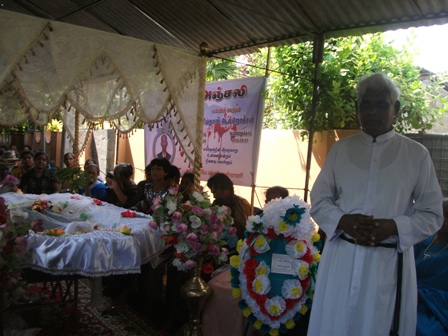Ruling party child abuse accused released on bail
The Tangalle Magistrate’s Court has released a politician of the ruling UPFA and 9 others who were accused of raping a child, on bail.
ColomboPage reported on Friday that Tangalle District Magistrate Yuresha de Silva released the suspects, including Tangalle Pradeshiya Sabha Chairman Anjana Liyanage, on a Rs 25,000 cash bail.
21 suspects were arrested over the rape of a 13-year old girl in a hotel, where she was abused over a period of 6 days.
According to ColomboPage the case has outraged child right activists, who demanded severe punishment of the culprits.
They called for rape to be made a non-bailable offence as most offenders that are released on bail, get out and repeat their crimes.








